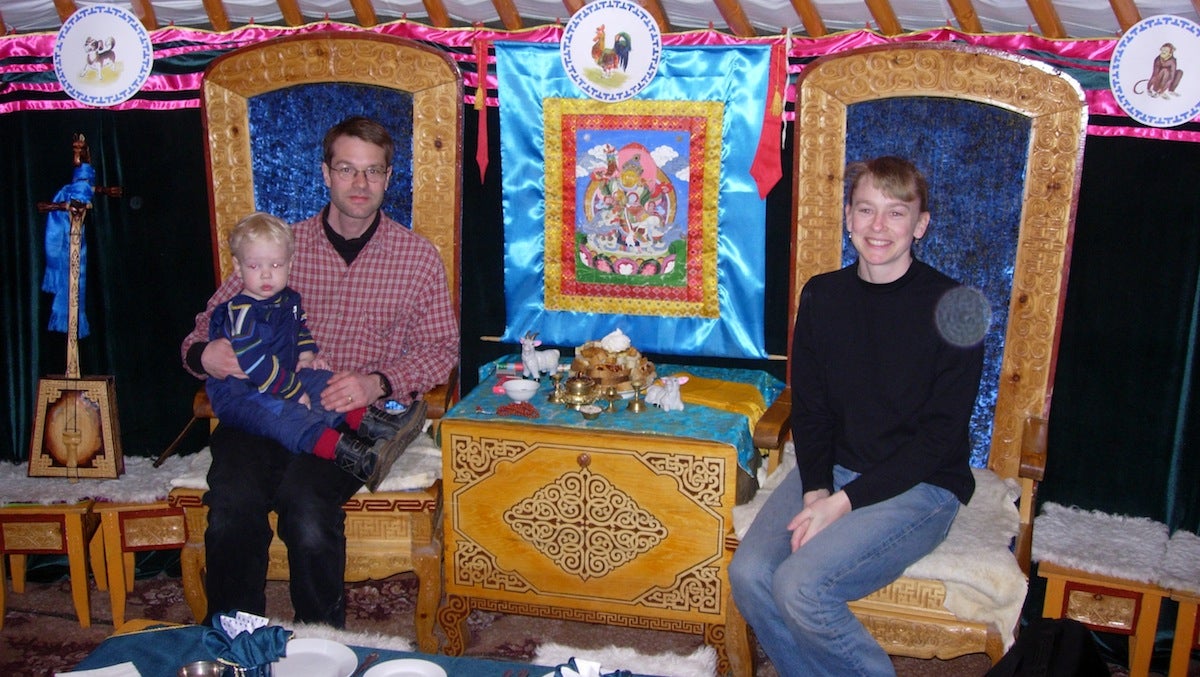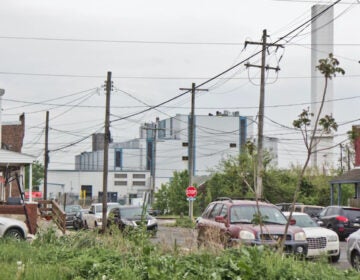Roxborough professor reflects on life and work in Siberia

Melissa Chakars (left) with her husband, Janis, and their son Vilnis in a traditional Buryat hut. (Courtesy of Robert Quijada)
Growing up in the “wild west” of the United States — Colorado — Melissa Chakars believes her interest in Siberia was a natural transition.
It’s the “wild east,” after all. A place that has a certain sense of “lawlessness and wildness to it,” according to Chakars, who has penned a book on the indigenous populations of Siberia titled “The Socialist Way of Life in Siberia.”
After making a trip to Siberia while an undergraduate student at Hunter College, the Roxborough resident and St. Joseph’s University professor has been back twice for research trips, living there with her family for up to a year each time in 2002 and 2005.
“I fell in love with the land,” she says. “I think we conjure up this image in our mind, that it’s where people are sent or exiled,” she continues.
“There are millions of people who have chosen to make it their home or are indigenous to the land,” says Chakars.
It’s those people Chakars wanted to focus on with her research. In her book, released earlier this year, she looks at the Buryats, a Mongolian population in Siberian Russia that make up the largest indigenous minority in the nation.
Chakars focuses her examination of the Buryat population on the modernization and assimilation of the group in the late 20th century.
Daily life and work
Her time, living in the cities of Ulan-Ude and Vladivostok, also offered her an “everyday perspective” on life in post-Soviet Russia.
She lived there through the coldest times of the year, with temperatures dipping to as low as below 40 degrees Fahrenheit some days. Those were the times her family had to don “two pairs of long underwear, pants, two shirts, a sweater, a long down coat and a hat,” she says.
Then there were the times she would walk to the archives in the morning to do her research and have to wait for the ink in her pen to thaw before she could start taking notes.
Chakars says she hopes to go back to continue to do research for future work. While she hasn’t had any run-ins with the government there while doing her research, she says she has friends and colleagues who have been restricted in the work they could do or denied visas.
Politics and poverty
She also noticed a difference in the way many Americans perceive Russian President Vladimir Putin with how many Russian citizens feel about him.
“People tend to trust him. Their quality of life is improving — they can travel, they have internet. The economy has turned around enough. People can feel comfortable,” she says. “There’s a certain amount of not wanting to rock the boat.”
In many ways she aligns life in Russia and life in Philadelphia. Both are diverse — economically, culturally and politically — she says.
There is “a lot of negativity about politics and a lot of poverty” in her experience.
Ultimately though, both are fascinating places to her.
“I’m never bored, it’s never dull, every day is something interesting and the chance to meet new people.”
WHYY is your source for fact-based, in-depth journalism and information. As a nonprofit organization, we rely on financial support from readers like you. Please give today.




